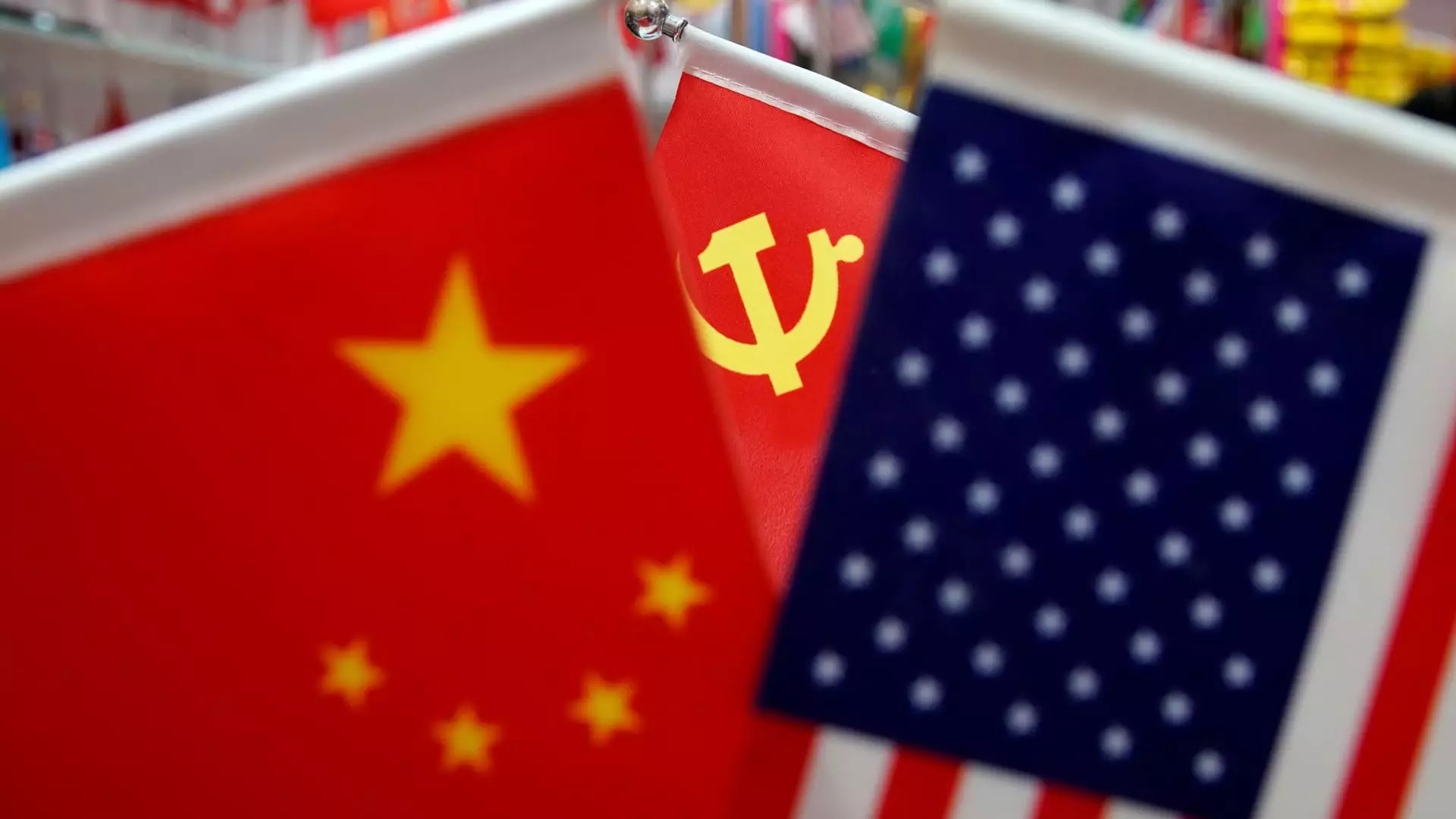In the arena of global finance, the relationship between the United States and China has become increasingly intricate. Recently, China’s Vice Premier He Lifeng has actively engaged with high-profile finance executives from the U.S., including representatives from major firms like BlackRock, Goldman Sachs, Citigroup, and HSBC, among others. These meetings have taken place against the backdrop of looming tariffs proposed by the then President-elect Donald Trump, which have raised significant concerns within the Chinese leadership. This proactive diplomatic strategy highlights how the Chinese government is attempting to fortify its financial partnerships while navigating an uncertain geopolitical landscape.
The essence of He Lifeng’s meetings serves two primary objectives. Firstly, it reflects China’s desire for closer ties with influential financial entities in America, crucial for attracting foreign investment amid rising trade tensions. According to Peter Alexander, a consultant in Shanghai, these engagements are a demonstration of China’s preference for ‘back channeling’, an approach that allows for more discreet negotiations and relationship-building with key stakeholders in Washington. By fostering connections with U.S. financial executives, China is not only seeking to mitigate the potential fallout from Trump’s protectionist policies but is also reiterating its commitment to opening up its financial markets.
Secondly, the urgency of these discussions stems from the need for China to reassure both domestic and international audiences about its economic resilience. The turbulent waters of international trade and tariffs demand that China maintain a robust dialogue with global financial players, particularly those based in the U.S. The political landscape within the U.S. is changing; thus, building rapport with the financial elite there becomes essential for Beijing’s economic stability.
Amid these diplomatic overtures, financial experts are weighing the implications of Trump’s incoming administration. Clark Packard from the Cato Institute suggests that Trump’s cabinet, filled with finance-savvy individuals, might serve as a moderating force against extreme protectionist measures. The concern about market reactions adds a layer of caution to the anticipated aggressive trade policies. As U.S. stock markets have demonstrated remarkable resilience, investors and U.S. officials alike are wary of decisions that could provoke volatility. The interplay between market performance and policy decisions remains crucial, particularly for financially driven officials.
As events unfold, the consequences of these diplomatic engagements extend beyond financial collaborations. Zongyuan Zoe Liu, an expert on China studies, expresses concern that while interaction with financial institutions is essential, it may not substantially alleviate growing tariffs and trade tensions. This tension reflects a broader struggle over economic influence, policy-making, and the emerging realities of a geopolitical shift that could redefine the future of international trade.
Furthermore, the strategic importance of the U.S.-China capital markets cannot be overstated. Winston Ma, an adjunct professor at NYU School of Law, elaborates on this interconnectedness, asserting that productive collaboration between the two can lead to fundamental mutual benefits—mutual assured prosperity—whereas the absence of cooperation could incite destructive outcomes. Ma’s insight serves as a sobering reminder of the stakes involved in these financial dialogues.
The current engagements initiated by He Lifeng reflect a broader strategy by China to mitigate the potential adverse impacts of increased U.S. tariffs and to assure its financial markets of ongoing foreign interest. As the global economic landscape continues to evolve, the dynamics between U.S. and Chinese officials, particularly in the financial sector, will be critical in shaping future policies and bilateral relations. In navigating this tightrope of diplomacy and finance, both nations stand at a crossroads that could either foster a cooperative economic environment or lead to a more adversarial stance, significantly impacting world markets. Thus, the course of current negotiations and policies will remain a focal point for diplomats and financial entities alike as they seek stability and growth in an ever-complicated global system.

